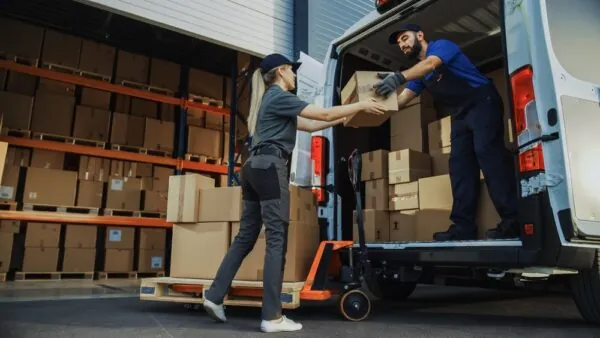The Unique Freight Needs of Retailers
There are keys to retail delivery. Every item you buy at a store or get delivered to your doorstep needs to get to its destination somehow. Whether you’re browsing down the aisle of a grocery store shopping for produce, ordering a new beach chair off Amazon, or buying a shirt at the mall, all of it has been on a truck at some point. Freight transportation and logistics play an integral role in retail.
Retailers face unique challenges in their supply chain operations, from handling a diverse range of products to meeting tight delivery schedules while adapting to seasonal demand fluctuations.
However, it’s imperative that retailers’ freight needs be met because, without them, supply chains would be disrupted, leading to inventory shortages, delayed deliveries, and, ultimately, dissatisfied customers.

Keys to Retail Delivery
Transporting and delivering products to and from retailers is essential, especially during peak seasons such as holidays and back-to-school season. Because of these peak seasons and the fluctuations in demand, flexibility is a key component of retail delivery. Retailers need freight services that can handle spikes in demand and multiple delivery options, such as same-day or next-day delivery.
Timeliness and reliability are also key elements in successful retail delivery. When a store or brand introduces a new product, retailers rely on precise delivery schedules to ensure that the product is readily available to customers.
Reliability in freight carriers allows retailers to plan their inventory management and replenishment processes efficiently.
Technology integration and AI help to maintain reliability and timeliness. Real-time tracking of shipment status can provide accurate delivery information to customers and help manage inventory.
Think of stores such as Walmart or Target, where you can buy clothes, groceries, and furniture all in one place. These retailers deal with diverse products and need a carrier to handle the shipping requirements. Certain products, such as perishables, fragile items, and electronics require special handling and packaging.
Sustainability and scalability are both essential key factors in retail delivery. More and more companies are leaning towards eco-friendly options in running their supply chains, like sustainable packaging and fuel-efficient transportation methods.
For example, Amazon utilizes electric vehicles to deliver packages to customers. In most instances, retailers continue to grow into new markets or increase their production lines, so freight solutions that can keep up with the growth are crucial.
Sometimes, customers aren’t satisfied with the products they purchase, so returns and reverse logistics are vital parts of retailer freight. Retailers need to implement efficient reverse logistics processes to manage returns in a cost-effective manner and minimize company losses. Not only does this help reduce losses, but it also garners customer satisfaction by streamlining returns and exchanges.
For retailers, it boils down to customer experience and satisfaction – how their sector thrives. In an age of instant gratification, 90% of online shoppers expect packages to arrive in 2-3 days. So, retailers want to ensure freight services prioritize customers, too. Premium delivery services or scheduled deliveries with clear communication throughout the process can help foster positive customer experiences.

The Future of Retailer Delivery
Although the keys to retail delivery have improved significantly, shipping needs will continue to change over time. Efficiency, speed, and reliability are already critical factors in retail freight today.
However, in the future, increased demand for speed will continue to expand. The want and need for same-day and next-day delivery or other expedited delivery services will be even more commonplace than they already are.
Technologies will continue advancing, leading to more AI integration in systems and resilient supply chains that can quickly adapt to disruptions. Technologies will also help retailers obtain data that provides customer insights to better understand and anticipate customers’ shipping needs and preferences. This will allow retailers to further focus on customer satisfaction.
It’s essential for retailers to foster strong partnerships with logistics providers to streamline their supply chain and get products to stores and customers on time.
By focusing on the keys to retail delivery, freight services can meet retailers’ unique needs and ensure their overall success.


